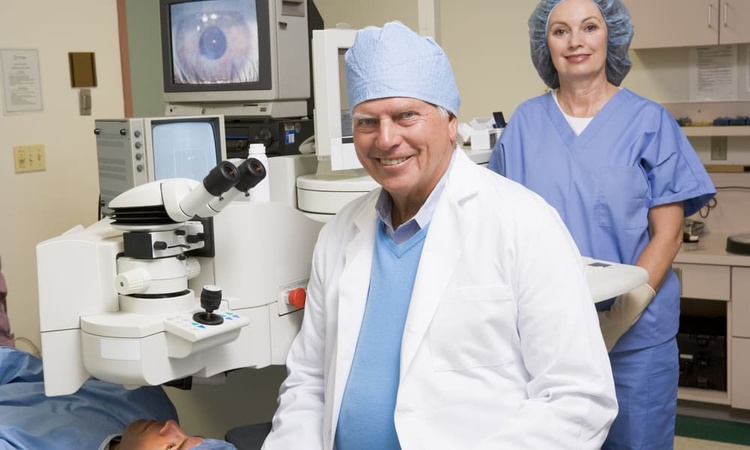Exploring Top Benefits of Medical Trainings in USA
Medical training programs in the USA offer a fast track to stable, in-demand careers. With access to advanced technology, experienced instructors, and hands-on clinical practice, students gain real-world skills and certifications recognized across the country. Whether you're pursuing nursing, medical assisting, or healthcare administration, U.S. programs provide flexible learning formats, financial aid opportunities, and strong job placement support — making it easier to enter the healthcare workforce with confidence.

What Makes US Medical Training Programs Stand Out Globally?
Medical training programs in the United States are renowned worldwide for their comprehensive curriculum and emphasis on practical skills. These programs combine theoretical knowledge with hands-on clinical experience, preparing students for real-world healthcare environments. Unlike many international programs, US medical training typically features smaller class sizes, allowing for personalized attention from instructors who are often practicing healthcare professionals themselves. The integration of cutting-edge medical technology into training programs ensures graduates are familiar with the latest tools and techniques used in modern healthcare facilities.
How Quickly Can You Enter the Healthcare Workforce After Training?
One significant advantage of many US medical training programs is their accelerated timeline to completion. While traditional medical degrees require many years of study, specialized programs like medical assistant or phlebotomy training can be completed in as little as 6-12 months. Nursing programs offer various entry points, from Licensed Practical Nurse (LPN) programs lasting approximately one year to Associate Degree in Nursing (ADN) programs completed in about two years. This expedited path to employment makes these programs particularly attractive to career changers and those unable to commit to lengthy educational pursuits.
What Career Opportunities Await After Medical Training in America?
Healthcare Career Opportunities in America are extraordinarily diverse and plentiful. The Bureau of Labor Statistics consistently projects faster-than-average growth for healthcare occupations. Medical assistants can work in physician offices, hospitals, outpatient care centers, and specialty clinics. Nurses find opportunities in virtually every healthcare setting, from hospitals and long-term care facilities to schools and corporate health departments. Additionally, many healthcare roles offer clear advancement pathways. Medical assistants might progress to specialized roles, office management, or with additional education, nursing. This career mobility provides ongoing professional development opportunities throughout your working life.
How Do Medical Assistant Certification Programs Benefit Your Career?
Obtaining Medical Assistant Certification USA credentials significantly enhances employment prospects and earning potential. Certified Medical Assistants (CMAs) and Registered Medical Assistants (RMAs) demonstrate to employers that they possess verified skills and knowledge. Most certification programs prepare students for nationally recognized exams through organizations like the American Association of Medical Assistants (AAMA) or American Medical Technologists (AMT). These credentials are portable across states, allowing professional mobility throughout the country. Additionally, certified medical assistants typically earn higher salaries than their non-certified counterparts and often receive priority consideration during the hiring process.
What Unique Features Do Nursing Training Courses in the US Offer?
Nursing Training Courses in the US provide some of the most comprehensive clinical education available worldwide. Students benefit from extensive simulation labs where they can practice procedures in realistic but controlled environments before working with actual patients. Many nursing programs maintain partnerships with leading healthcare facilities, allowing students to complete clinical rotations in diverse settings—from major urban medical centers to rural community hospitals. This breadth of experience prepares graduates to work confidently in various healthcare environments. Additionally, US nursing programs increasingly incorporate specialized training in areas like geriatrics, pediatrics, and mental health, allowing students to pursue their specific interests within the nursing profession.
What Are the Real Costs and Returns of Medical Training Programs?
Medical training program costs vary significantly based on the credential pursued, program length, and institution type. Community college programs generally offer the most affordable options, while private specialized schools may charge premium rates but often provide accelerated completion timelines.
| Program Type | Average Cost Range | Program Duration | Average Starting Salary |
|---|---|---|---|
| Medical Assistant Certificate | $1,200 - $4,000 (public) $5,000 - $15,000 (private) | 6-12 months | $35,850 - $41,900 |
| Licensed Practical Nurse | $5,000 - $25,000 | 12-18 months | $48,070 - $63,790 |
| Registered Nurse (ADN) | $6,000 - $40,000 | 2 years | $59,450 - $77,600 |
| Registered Nurse (BSN) | $40,000 - $100,000+ | 4 years | $65,000 - $84,000 |
| Phlebotomy Technician | $700 - $3,000 | 4-8 months | $32,710 - $48,030 |
Prices, rates, or cost estimates mentioned in this article are based on the latest available information but may change over time. Independent research is advised before making financial decisions.
Financial aid opportunities make these programs more accessible than their sticker prices suggest. Many students qualify for federal grants, scholarships, work-study programs, and low-interest loans. Additionally, some employers offer tuition reimbursement for current employees pursuing healthcare education. When considering the return on investment, medical training programs typically show strong value, with relatively quick entry into stable careers with competitive compensation and benefits.
Is Medical Training in the USA Right for You?
The Benefits of Medical Training in USA extend beyond career opportunities to include personal growth and professional satisfaction. Healthcare professionals regularly report high job satisfaction stemming from making tangible differences in patients’ lives. The skills gained through medical training—including critical thinking, communication, and problem-solving—transfer well to many life situations. Before committing to a program, research accreditation status, graduation rates, and job placement statistics. Visit campuses, speak with current students and graduates, and consider how each program’s schedule and format align with your personal circumstances and learning style. With careful consideration, medical training can be the first step toward a rewarding lifelong career in healthcare.
This article is for informational purposes only and should not be considered medical advice. Please consult a qualified healthcare professional for personalized guidance and treatment.




